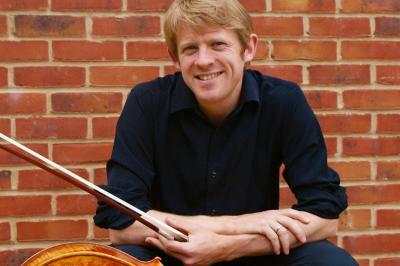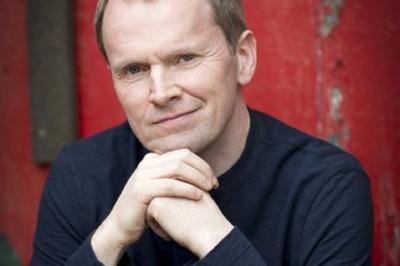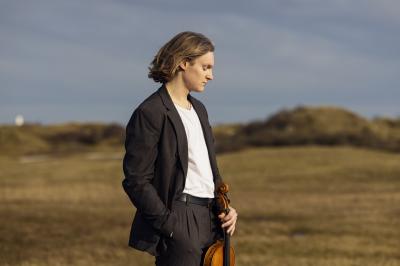Kammer Philharmonia
The Kammer Philharmonie has visited Nairn several times in the past - well it has and it hasn't. The performance for Music Nairn was my first KP concert, so I can't tell when it dropped its link to Cologne and became a 'portfolio' group, simply recruiting a random selection of musicians from throughout Eastern Europe prepared to undertake and available for an extended tour. This may seem a technicality, but I think there are implications for the music-making, which were apparent in their latest manifestation. Approaches to the music ranged from flamboyant animation to appearing almost to 'phone it in' - the resulting performances were a curious blend of the virtuosic and the slap-dash.
The concert opened with a String Concerto by Vivaldi. With two violins each on the upper voices and a cello and double-bass on the bottom line, the single violist was slightly overpowered, and there were issues of balance throughout the evening. We also missed a continuo keyboard instrument in the Baroque pieces. Having said that, the Vivaldi was crisp and cheerful, as was the attractive Albinoni Trumpet Concerto, for which the group was joined by nimble soloist Cyrill Gusaroff. Demonstrating their versatility as an ensemble, they concluded the first half with the lovely Serenade for Strings by Joseph Suk. As chance would have it, I had spent the day with the Highland Chamber Orchestra working on Suk's father-in-law, Antonin Dvorak's Eighth Symphony, so I was perfectly attuned to the Bohemian flair and nostalgia of the Serenade. Suk is a composer who is unjustifiably obscure, and his String Serenade with its daring harmonies, its simply exquisite slow movement and wonderful shifts in mood is powerful testimony to its composer's considerable skill and imagination. The Kammer Philharmonie played with passion and subtlety, and if the seven-person ensemble again sounded underpowered in a work conceived for a full orchestral string section, there was charm and wit aplenty in their account.
The second half opened with Bach, as the ensemble's leader Michel Gershwin stepped into the spotlight as soloist in the composer's E-major violin concerto. Gershwin's complete almost offhand mastery of this demanding solo part was impressive, as was the ensemble's sympathetic accompaniment. Mention the name Albinoni, and most people think not of the Trumpet Concerto we had heard in the first half or indeed any other of his fine surviving compositions, but of his Adagio, a piece which he probably had little or nothing to do with the composition of. A romantic concoction along the lines of the 'Allegri Miserere', it was probably confected in the 1940s by the composer's biographer Remo Giazatto who 'worked it up' from a melodic fragment he purported to have found when searching through a bombed-out musical archive. The resulting pastiche breaks so many Baroque conventions, harmonic, structural and melodic, that the ascription to Albinoni should have been abandoned years ago. However, like the 'Allegri', 'Albinoni's Adagio' remains hugely popular, and in an unashamedly romantic rendition by KP its neo-Baroque charms were apparent.
The concert concluded with the Little Suite for Strings by Danish composer Carl Nielsen, a piece of juvenilia composed when he was a 22-year-old student. We would search in vain for the sweeping and acerbic genius of the mature Nielsen, but the writing for string ensemble is confident and idiomatic, and it remains one of his most frequently performed works. The KP found all of the piece's considerable charm, although again issues of balance and an underpowered sound resurfaced. The group responded to warm applause from a capacity end-of-season Music Nairn audience with a folky Romanian showpiece for trumpet and strings.
Forthcoming Events






